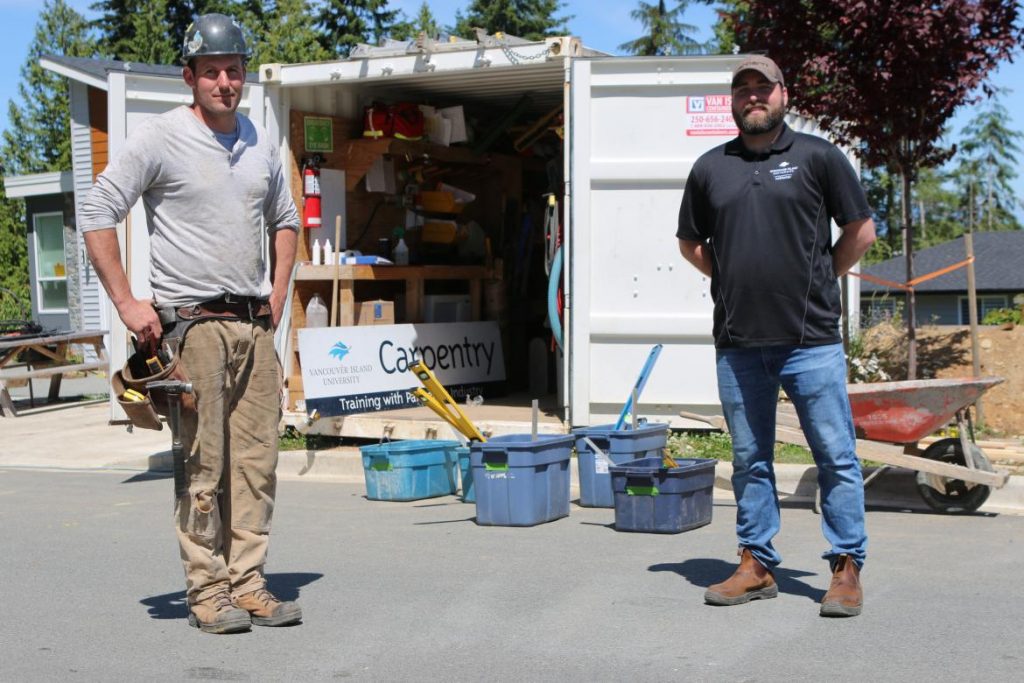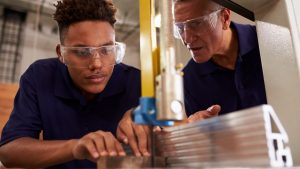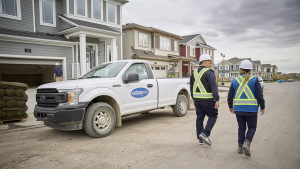With some quick thinking and assistance from its partners, Vancouver Island University (VIU) has continued to give trades students crucial jobsite experience during the COVID-19 pandemic.
For the carpentry foundation program, the university’s carpentry department worked with Ken Grewal, owner of KSG Consulting Ltd., to develop a workable solution that promotes the health and safety of the students while providing them with a real-world homebuilding experience.
“It is the most authentic learning environment possible because it’s not a simulated experience,” said carpentry instructor Cam Frenette. “It’s a real live jobsite. Ken Grewal has been a big supporter of our program. It really is a partnership. He is sacrificing every timeline that he could imagine for us. We like to challenge our students when we can, but our top goal is learning. He gives us the space and time to do that and it’s a big sacrifice on his part.”
KSG has been giving the school access to jobsites for the past five years. Frenette explained that for 2020, KSG has given the class access to one of its sites in north Nanaimo.
The class of 18 has been tasked with working on a detached duplex. Frenette said the duplex allows the full class to work onsite at the same time, with half in each unit to ensure the necessary physical distancing requirements can be adhered to. Frenette noted the first day on the jobsite students were tasked with building a handwash station.
The school has also taken other precautions, like supplying students with individual sets of tools, sanitization protocols and isolated wash stations.
The school’s carpentry foundation program covers the basic carpentry skills required to prepare students for employment as a carpenter apprentice in the building industry.
According to VIU, the curriculum seeks an effective balance between hands-on learning activities and specific academic and theoretical components.
Frenette said when COVID-19 first hit, class was paused for a week while the school worked to completely digitize all four levels of the carpentry curriculum. Videos, Zoom meetings and other online tools have been used to continue teaching.
The school also had to rearrange its shop layout to accommodate physical distancing and individual workspaces.
“I can’t think of anyone who would have had online teaching experience for carpentry before this,” said Frenette. “But we are lucky because carpenters are problem-solvers, so our students were really supportive and have given good feedback.”
Under the new hybrid learning platform, students will get more time on a construction site than in previous years. The first six weeks of classes will be online, followed by 22 weeks onsite.
While transitioning classes to fit in the COVID-19 world has been a challenge, associate dean Paul Mottershead noted it has had its benefits.
“I feel that students have transitioned very well and some are really enjoying it, as doing some of their work from home means less stress in their life,” he said. “It is a more relaxed atmosphere for them and they can focus a bit more.”
Frenette noted to make sure the changes are working, hearing from students has been key.
“It has been a long process but its been good, feedback from the students has been good,” said Frenette. “I am confident we will meet learning outcomes the students want to take away from these programs.”
Follow the author on Twitter @RussellReports.






excellent work plan. Real life work experience, with its nuances is the best teacher. with many job sites on the island it is a great opportunity for students land future employers.